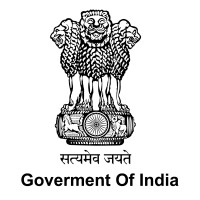About Govt of india
The Government of India is the governing body of the Republic of India, responsible for managing and administering the country's affairs. The government is divided into three branches: legislative, executive, and judiciary. The legislative branch consists of the Parliament, which is responsible for making laws and regulations. The executive branch consists of the President, Prime Minister, Cabinet Ministers, and other officials who are responsible for implementing these laws and regulations. Finally, the judiciary branch consists of various courts that interpret these laws and regulations.
The Government of India has a rich history dating back to 1947 when India gained independence from British rule. Since then, it has been working tirelessly to improve the lives of its citizens by providing them with basic amenities such as education, healthcare facilities, housing schemes etc.
One major initiative taken by the Government in recent years is Digital India - a campaign launched in 2015 aimed at transforming India into a digitally empowered society and knowledge economy. This initiative aims to provide high-speed internet connectivity to all citizens across rural as well as urban areas in order to bridge the digital divide between different sections of society.
Another major initiative taken by the Government is Make in India - an ambitious program launched in 2014 aimed at promoting manufacturing within India with an aim to increase employment opportunities while also boosting economic growth.
The Indian government has also been actively involved in promoting renewable energy sources such as solar power through initiatives like National Solar Mission which aims at achieving 100 GW solar power capacity by 2022.
In addition to this, there are several other initiatives undertaken by various ministries under different sectors such as agriculture (Pradhan Mantri Fasal Bima Yojana), health (Ayushman Bharat), education (Sarva Shiksha Abhiyan) etc., all aimed at improving overall quality of life for Indian citizens.
Apart from domestic policies and initiatives undertaken by various ministries under different sectors mentioned above; foreign policy plays an important role in shaping India's relations with other countries. The Indian government has been actively involved in promoting peace and stability in the region through various initiatives such as Look East Policy, Act East Policy, and Neighbourhood First Policy.
In conclusion, the Government of India is a dynamic entity that is constantly working towards improving the lives of its citizens. With a rich history dating back to 1947, it has undertaken several initiatives aimed at promoting economic growth, social welfare and environmental sustainability. Its policies have not only impacted domestic affairs but also shaped India's relations with other countries on the global stage.
